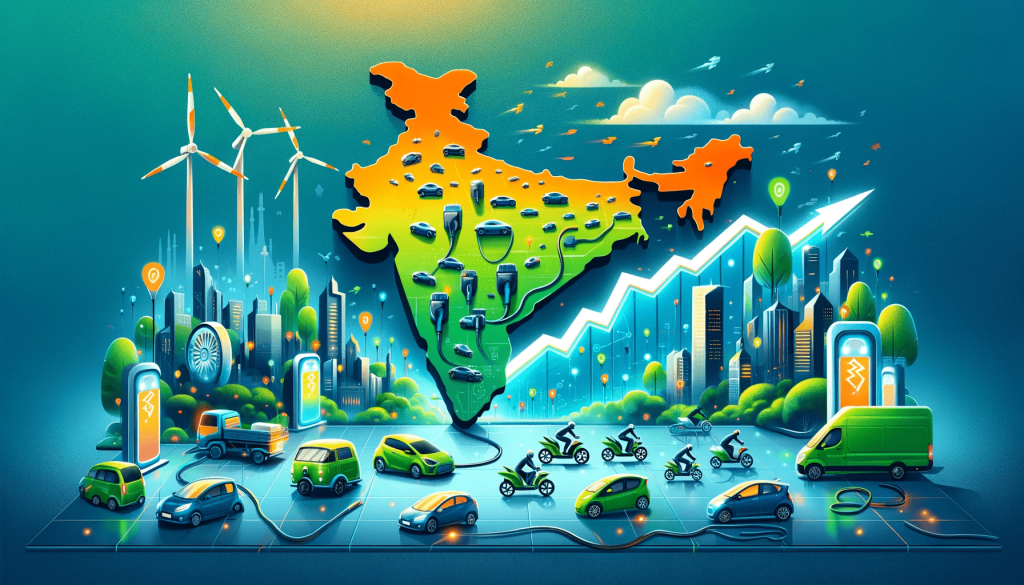
As the global focus intensifies on sustainable transportation, the electric vehicle (EV) industry in India stands on the brink of a significant evolution. This decade, spanning from 2020 to 2030, is poised to witness transformative growth in the EV sector. Understanding this potential growth and its implications is vital for businesses, investors, and policymakers aiming to capitalize on the emerging opportunities in this burgeoning market.
The Current State of the EV Industry in India
The Indian EV industry, as of the latest data, shows promising signs of a rapidly expanding market. This growth is driven by increasing environmental consciousness, government initiatives promoting clean energy, and advancements in EV technology. However, despite the growing interest and potential, the sector faces several challenges, including infrastructure development, high vehicle costs, and consumer range anxiety.
Projected Growth and Market Dynamics
The next decade is expected to be a period of accelerated growth for the EV sector in India. This growth will be fueled by several factors, including technological advancements in battery and charging infrastructure, supportive government policies, and increasing consumer awareness about environmental issues. The push towards electrification of transportation is expected to gain significant momentum, especially in urban areas where pollution and fuel costs are primary concerns.
Opportunities in the EV Value Chain
The EV value chain in India presents a wide array of opportunities, from vehicle manufacturing to battery production and charging infrastructure development. The market for EV-related machinery and equipment, for instance, is anticipated to see moderate demand with relatively low competition. This opens doors for businesses specializing in machine engineering, electrical and mechanical engineering, and production management. The demand for these skills highlights the growing need for technological innovation and efficient production processes within the EV industry.
Net Zero by Narsi
Insights and interactions on climate action by Narasimhan Santhanam, Director - EAI
View full playlistInvestment and Strategic Planning
For businesses seeking to enter the EV market, strategic planning and investment are crucial. The sector demands significant capital investment, especially for those targeting upstream parts of the value chain, such as battery manufacturing. Setting up a Li-ion battery cell manufacturing facility, for example, requires extensive planning, financial resources, and a timeframe of up to one and a half years from planning to commissioning. In contrast, establishing an electric scooter assembly facility could be realized within a couple of months, offering a quicker entry point into the EV market.
Policy and Regulatory Landscape
Government policies and regulations play a pivotal role in shaping the growth trajectory of the EV sector. Incentives for EV manufacturing, subsidies for consumers, and investments in charging infrastructure are critical for accelerating the adoption of EVs. The Indian government’s commitment to reducing carbon emissions and promoting clean energy is expected to translate into more supportive policies for EVs, making it an attractive sector for investment and innovation.
Consumer Trends and Market Acceptance
Consumer acceptance of EVs will be a determining factor in the sector’s growth. As battery technologies improve, leading to longer ranges and shorter charging times, consumer hesitancy is expected to decrease. Additionally, the increasing variety of EV models available in the market, catering to different price points and consumer needs, will play a significant role in driving adoption.
Challenges and Solutions
While the opportunities are vast, the EV sector in India faces its share of challenges. Key among these are the high cost of EVs compared to traditional vehicles, the scarcity of charging infrastructure, and the need for technological advancements in battery efficiency and production. Addressing these challenges requires collaborative efforts from the government, industry players, and research institutions. Innovations in battery technology, investments in charging infrastructure, and consumer education will be critical to overcoming these barriers.
The Road Ahead
The decade from 2020 to 2030 is set to be a transformative period for the EV industry in India. With strategic investments, supportive policies, and continuous innovation, the sector is poised to overcome its current challenges and realize its full potential. This period will not only witness significant growth in terms of market size and opportunities but will also contribute to India’s broader goals of sustainability and reduced carbon emissions. The EV industry, therefore, stands as a beacon of opportunity, innovation, and growth in India’s journey towards a greener future.





 Our specialty focus areas include
Our specialty focus areas include




